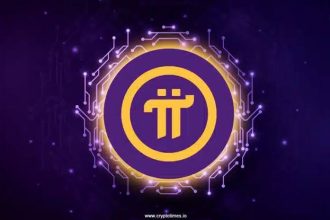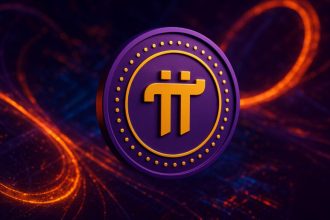- The Nigerian House of Representatives, under Speaker Abbas Tajudeen, has reaffirmed its commitment to developing a clear and secure regulatory framework for cryptocurrency and blockchain innovation.
- A special committee on blockchain and digital finance has been inaugurated to work closely with the Central Bank of Nigeria (CBN) and the Securities and Exchange Commission (SEC) to standardize operations in the crypto ecosystem.
- The Central Bank, which previously restricted banks from handling crypto-related transactions, has now begun exploring regulated models that balance innovation with anti-fraud controls.
- The initiative aligns with President Bola Tinubu’s Renewed Hope Agenda, which emphasizes digital transformation, job creation, and youth empowerment through blockchain and fintech solutions.
In a move that underscores Nigeria’s increasing engagement with the global digital economy, the Speaker of the House of Representatives, Rt. Hon. Abbas Tajudeen, has officially inaugurated an Ad-Hoc Committee tasked with investigating the economic, regulatory, and security implications of cryptocurrency adoption and Point-of-Sale (POS) operations across the country.
A Response to Rising Digital Finance Concerns
Speaking during the inauguration ceremony, Speaker Abbas Tajudeen highlighted that the formation of the committee was driven by mounting reports of fraud, online scams, and consumer exploitation within Nigeria’s rapidly evolving fintech and crypto ecosystems.
“The Nigerian economy has shown remarkable resilience over the years, bouncing back from recessions and recording impressive growth in non-oil sectors,” Tajudeen said.
He noted that with such a robust economic base, it is inevitable that cryptocurrency trade and digital financial tools will continue to attract widespread adoption among Nigerians seeking innovative financial solutions.
However, the Speaker was quick to emphasize caution:
“There are real concerns about cryptocurrency’s susceptibility to terrorism financing and money laundering, given its opaque nature, dubious regulatory framework, unclear governance structure, and lack of accountability,” he warned.
Nigeria’s Evolving Crypto Landscape
Nigeria is home to one of the largest crypto markets in Africa. Over the past few years, millions of Nigerians have turned to digital currencies as a hedge against inflation, naira depreciation, and limited access to foreign exchange.
Platforms such as Binance, Coinbase, and local exchanges like Quidax and Patricia have witnessed a surge in users, particularly among young, tech-savvy Nigerians.
However, this growth has also brought regulatory challenges. In 2021, the Central Bank of Nigeria (CBN) banned commercial banks from facilitating crypto transactions, citing risks of money laundering and financial instability. The policy forced many exchanges to operate via peer-to-peer (P2P) networks, making them harder to monitor.
In 2023, under the administration of President Bola Ahmed Tinubu, the government began reassessing its crypto policy, shifting from prohibition to regulation. This new stance aligns with Tinubu’s broader economic reforms aimed at fostering digital innovation and attracting investment.
The Role of the New Ad-Hoc Committee
According to the Speaker, the Ad-Hoc Committee has been mandated to conduct comprehensive public hearings that will bring together stakeholders from the CBN, SEC, law enforcement agencies, fintech associations, and crypto industry experts.
The committee’s tasks include:
- Evaluating the economic impact of cryptocurrency adoption on Nigeria’s financial system.
- Assessing the security implications, including cybercrime, fraud, and terrorism financing.
- Reviewing the role of POS operators in Nigeria’s cashless economy amid rising fraud cases.
- Recommending a regulatory framework that ensures consumer protection and accountability.
“This Ad-Hoc Committee is absolutely necessary,” Tajudeen stated. “Its main job is to undertake public hearings to collate relevant information from stakeholders that will guide the House in developing legislation for the adoption of the currency in our economy.”
The POS Challenge: Convenience Meets Crime
Since the cashless policy of the CBN gained traction, POS agents have become the backbone of grassroots financial inclusion. They provide millions of Nigerians with access to basic financial services like withdrawals, transfers, and bill payments.
However, this success has come with a rise in POS-related fraud, data breaches, and cyber thefts. Many agents operate without formal registration or regulation, leading to widespread consumer exploitation.
Security agencies and financial regulators have voiced concern over the lack of data protection and the vulnerability of POS systems to criminal misuse. The committee will explore options for strengthening oversight and accountability in this growing sector.
Commitment to Consumer Protection and Economic Stability
Speaker Abbas Tajudeen reaffirmed the commitment of the 10th House of Representatives to uphold the principles of economic integrity and public safety.
“The 10th House will not stand by while citizens are exposed to digital exploitation or while criminal elements use new technologies to undermine our economy,” Tajudeen emphasized.
He further stressed that the House would continue to support President Tinubu’s administration in modernizing Nigeria’s financial systems, boosting digital infrastructure, and enabling innovation-driven economic growth.
Global Best Practices and Nigeria’s Road Ahead
Globally, countries have taken varied approaches to crypto regulation:
- United States: Enforces compliance through SEC and FinCEN with strict AML rules.
- European Union: Introduced MiCA to create a unified crypto legal framework.
- Kenya, Ghana, and South Africa: Developing national crypto policies to balance innovation and safety.
Experts argue that Nigeria must learn from these examples and tailor its own regulatory system that encourages innovation while preserving stability. Economic analysts welcomed the committee’s formation as a strategic intervention to boost investor confidence and unlock the potential of Nigeria’s digital economy.
Industry Stakeholders React
Reactions have poured in from across the fintech and blockchain sectors:
“Nigeria cannot afford to remain on the sidelines of the global digital finance revolution,” said Dr. Ifeoma Okafor, a blockchain policy analyst. “We need to protect users without stifling innovation.”
“Cryptocurrency is not the enemy poor regulation is,” remarked fintech entrepreneur David Nwosu. “If Nigeria sets clear, business-friendly rules, we can attract billions in foreign investments.”
However, some critics warn that excessive regulation could discourage startups and push innovation underground. They recommend a balanced framework that allows experimentation under regulatory supervision.
Tinubu’s Economic Reform Agenda and Digital Finance
The committee’s creation aligns with the Renewed Hope Economic Agenda of President Bola Ahmed Tinubu, which promotes transparency, inclusion, and technological advancement in the financial sector.
Since taking office, Tinubu has introduced bold reforms including:
- Removal of fuel subsidies.
- Unification of the naira exchange rate.
- Promotion of digital payment systems to reduce corruption.
Observers believe cryptocurrency regulation could become one of the administration’s landmark reforms, potentially enhancing financial inclusion and foreign investor confidence.
Conclusion
The inauguration of this Ad-Hoc Committee marks a turning point for Nigeria’s digital economy. As the committee works to balance innovation with regulation, its recommendations will shape the nation’s cryptocurrency and POS policies for years to come.
With proper oversight and clear rules, Nigeria could emerge as Africa’s leading hub for regulated crypto innovation, strengthening economic growth, restoring trust, and protecting consumers in the digital age.













, I believe the creation of this Ad-Hoc Committee is a necessary and positive development. Nigeria cannot ignore the risks associated with the growing digital finance ecosystem, and unsupervised growth will lead to more fraud, distrust, damage to consumers, and possibly more financial instability or illicit flows.
Nigeria needs a regulatory framework to address the increasing issues with crypto fraud, poor POS practices, consumer exploitation, and the risk of illicit flows. But the regulation should aim to enable responsible innovation rather than suppress growth. If done well, this could strengthen financial inclusion, foster fintech growth, and build trust. If done poorly (rigid, opaque, heavy compliance cost), it risks pushing people into riskier unregulated channels.